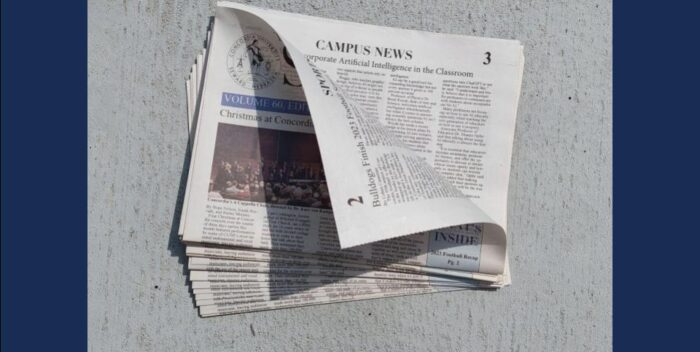Concordia students spoke and The Sower listened
Photo credit: Nora Betts
By Nora Betts, Managing Editor
I surveyed 123 students last semester about how they interact with The Sower and what kinds of articles they want to read. Now as managing editor, I am working to increase awareness of The Sower’s website and Instagram and to refocus our coverage to topics meaningful to students.
The survey showed the two major hurdles The Sower faces in gaining readership. Students are largely aware of the print editions but not the CUNESower.com website, and few students stay up to date by following our Instagram.
The Sower publishes articles in monthly print editions distributed around campus, and on the website. Because The Sower print editions are left in front of every dorm room on campus and stacked in other campus buildings, it’s not surprising that 83 percent of students surveyed knew about them.
However, only some articles make it into the print editions. Students miss out if they do not read the website, which is constantly updated with every article we write. The survey showed that only 49% of students knew about The Sower’s website, and only 43 percent had read at least one article online.
Awareness of The Sower’s Instagram was even lower. We use Instagram to share campus happenings and to advertise when a new article comes out. Only 18.7 percent of students said that they followed Sower Instagram, and 46 percent of students did not even know the account existed.
This lack of awareness and engagement with The Sower is what social scientist B. J. Fogg, in his Fogg Behavior Model, calls a problem of ability. We can improve students’ ability to read The Sower by advertising our website and Instagram so they know where to look.
However, the Fogg Behavior Model says that ability is not everything. Potential readers of The Sower also face a problem of motivation. One way we can improve students’ motivation to read The Sower is to publish articles they care about.
The kinds of articles that interested survey respondents were about student life and activities, clubs, sports, Seward-area events, and feature stories on students and faculty. The topics that students cared the least about were administrative news and the dining hall (sorry, Chartwells.) Focusing coverage on the topics that interest students can increase motivation to read The Sower.
Students are also motivated by humor and entertainment, so we want to incorporate columns and cartoons in our website and print editions. By adding meaningful articles and fun stuff to The Sower, we can hopefully make students motivated to read what we write.





















